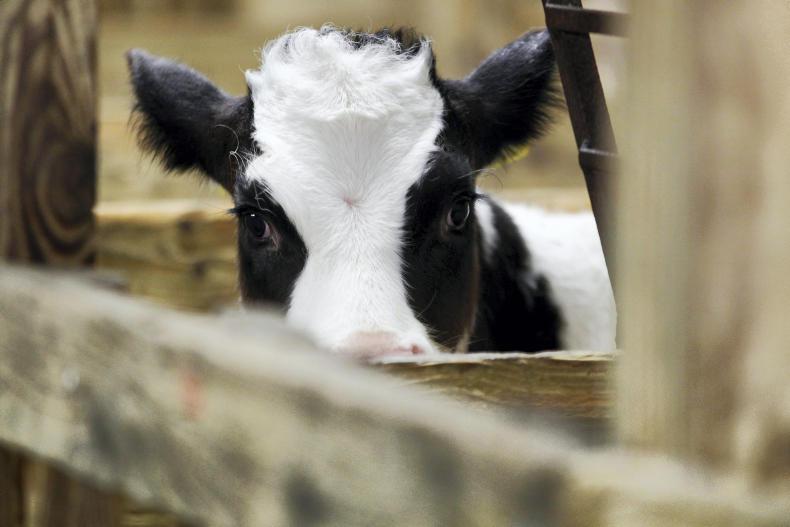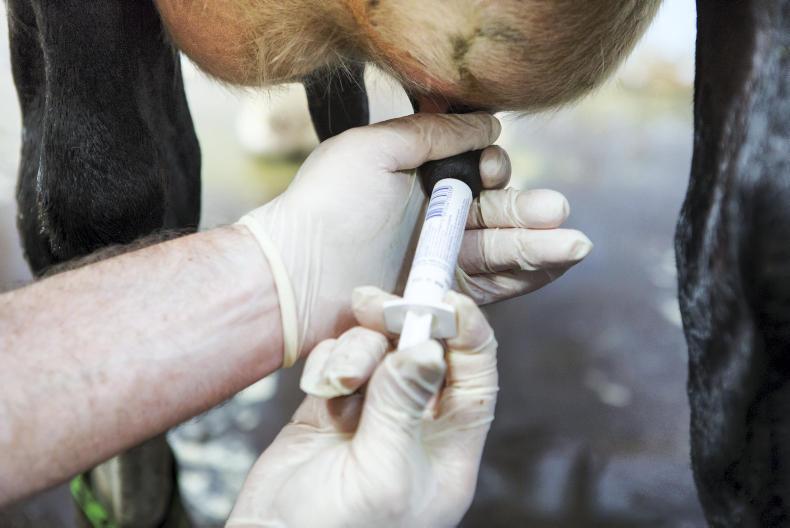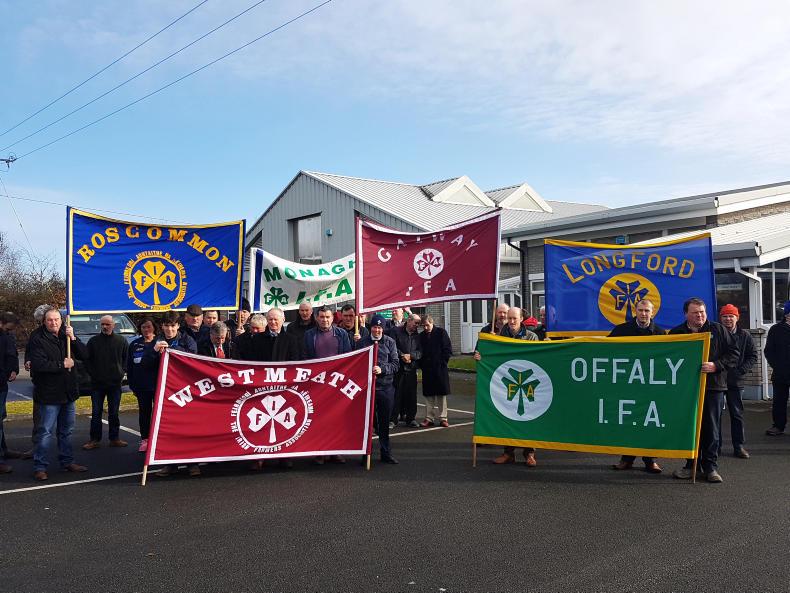Representatives of Animal Health Ireland (AHI), the Department of Agriculture, farming organisations, vets, dairy processors and breeding societies met in Naas, Co Kildare, this Thursday to agree on the course of action to follow from the pilot programme of the past three years.
Participants told the Irish Farmers Journal that there was agreement to launch a voluntary programme open to all farmers wishing to join it nationwide. The Johne’s disease implementation committee is due to start work on the details of the programme this month, with a view to launching it during 2017.
AHI chief executive Joe O’Flaherty said the programme would be centred on an intervention by a specially trained vet on each participating farm, as well as regular testing. According to him, the main challenge lies in getting farmers to participate in the absence of an immediate benefit for each farm. “There isn’t a good strong economic incentive as there is in relation to other diseases like BVD,” he said.
If we can’t demonstrate we’re adding value back to the farmers, farmers just won’t participate
Looking at Canada and Australia, AHI is planning to incorporate wider elements into the programme to attract more farmers, including improvements to general calf health and biosecurity. O’Flaherty said this would deliver “fewer sick calves, lower calf mortality, better farm biosecurity and lower use of antimicrobials on the farm” while tackling the spread of Johne’s disease. “If we can’t demonstrate we’re adding value back to the farmers, farmers just won’t participate,” he added.
Listen to an interview with Joe O’Flaherty in our podcast below:
Listen to “AHI's Joe O'Flaherty on Johne's disease” on Spreaker.
According to AHI chair Mike Magan, there is now enough information from the pilot programme to widen its reach. “When AHI was set up, Johne’s was high on the agenda of issues to be tackled,” he said. “It was part of our remit from the first day to look at Johne’s as an industry issue and to build the knowledge that we now have.”
What remains to be decided is how the costs of the programme will be covered. In the pilot phase, the Department of Agriculture funded veterinary visits and milk processors contributed towards testing for the disease. O’Flaherty said the stakeholders were now considering reversing the model, with the Department meeting some of the testing costs and co-ops contributing to vet fees.
Minister’s support
Bert Stewart and TJ Maher of the IFA’s animal health project team took part in Thursday’s meeting and welcomed Agriculture Minister Michael Creed’s participation. “It’s important that the minister gives full support to the programme,” said Maher, highlighting that the greater risk posed by Johne’s disease is to the wider industry rather than each individual farmer.
Stewart expressed support for the programme “as long as it doesn’t develop into an industry itself” and noted that there was not yet agreement on how long it should last.
Johne’s disease is a notifiable infectious disease of ruminants caused by a bacteria. Most infections occur in calves or young cattle through feeding on infected material, such as colostrum from an infected cow or spreading of slurry from infected cattle on pastures grazed by young stock. Infected animals present chronic scours, lose condition over time and ultimately die.
“We have a much lower prevalence of disease in Ireland than in many other countries in Europe,” said O’Flaherty. This means the control programme will be as much about keeping clear herds free of the bacteria as tackling it in the small number of detected cases.
Read more
AHI appoints new Johne’s disease programme manager
How to tackle Johne’s Disease effectively
Representatives of Animal Health Ireland (AHI), the Department of Agriculture, farming organisations, vets, dairy processors and breeding societies met in Naas, Co Kildare, this Thursday to agree on the course of action to follow from the pilot programme of the past three years.
Participants told the Irish Farmers Journal that there was agreement to launch a voluntary programme open to all farmers wishing to join it nationwide. The Johne’s disease implementation committee is due to start work on the details of the programme this month, with a view to launching it during 2017.
AHI chief executive Joe O’Flaherty said the programme would be centred on an intervention by a specially trained vet on each participating farm, as well as regular testing. According to him, the main challenge lies in getting farmers to participate in the absence of an immediate benefit for each farm. “There isn’t a good strong economic incentive as there is in relation to other diseases like BVD,” he said.
If we can’t demonstrate we’re adding value back to the farmers, farmers just won’t participate
Looking at Canada and Australia, AHI is planning to incorporate wider elements into the programme to attract more farmers, including improvements to general calf health and biosecurity. O’Flaherty said this would deliver “fewer sick calves, lower calf mortality, better farm biosecurity and lower use of antimicrobials on the farm” while tackling the spread of Johne’s disease. “If we can’t demonstrate we’re adding value back to the farmers, farmers just won’t participate,” he added.
Listen to an interview with Joe O’Flaherty in our podcast below:
Listen to “AHI's Joe O'Flaherty on Johne's disease” on Spreaker.
According to AHI chair Mike Magan, there is now enough information from the pilot programme to widen its reach. “When AHI was set up, Johne’s was high on the agenda of issues to be tackled,” he said. “It was part of our remit from the first day to look at Johne’s as an industry issue and to build the knowledge that we now have.”
What remains to be decided is how the costs of the programme will be covered. In the pilot phase, the Department of Agriculture funded veterinary visits and milk processors contributed towards testing for the disease. O’Flaherty said the stakeholders were now considering reversing the model, with the Department meeting some of the testing costs and co-ops contributing to vet fees.
Minister’s support
Bert Stewart and TJ Maher of the IFA’s animal health project team took part in Thursday’s meeting and welcomed Agriculture Minister Michael Creed’s participation. “It’s important that the minister gives full support to the programme,” said Maher, highlighting that the greater risk posed by Johne’s disease is to the wider industry rather than each individual farmer.
Stewart expressed support for the programme “as long as it doesn’t develop into an industry itself” and noted that there was not yet agreement on how long it should last.
Johne’s disease is a notifiable infectious disease of ruminants caused by a bacteria. Most infections occur in calves or young cattle through feeding on infected material, such as colostrum from an infected cow or spreading of slurry from infected cattle on pastures grazed by young stock. Infected animals present chronic scours, lose condition over time and ultimately die.
“We have a much lower prevalence of disease in Ireland than in many other countries in Europe,” said O’Flaherty. This means the control programme will be as much about keeping clear herds free of the bacteria as tackling it in the small number of detected cases.
Read more
AHI appoints new Johne’s disease programme manager
How to tackle Johne’s Disease effectively










SHARING OPTIONS